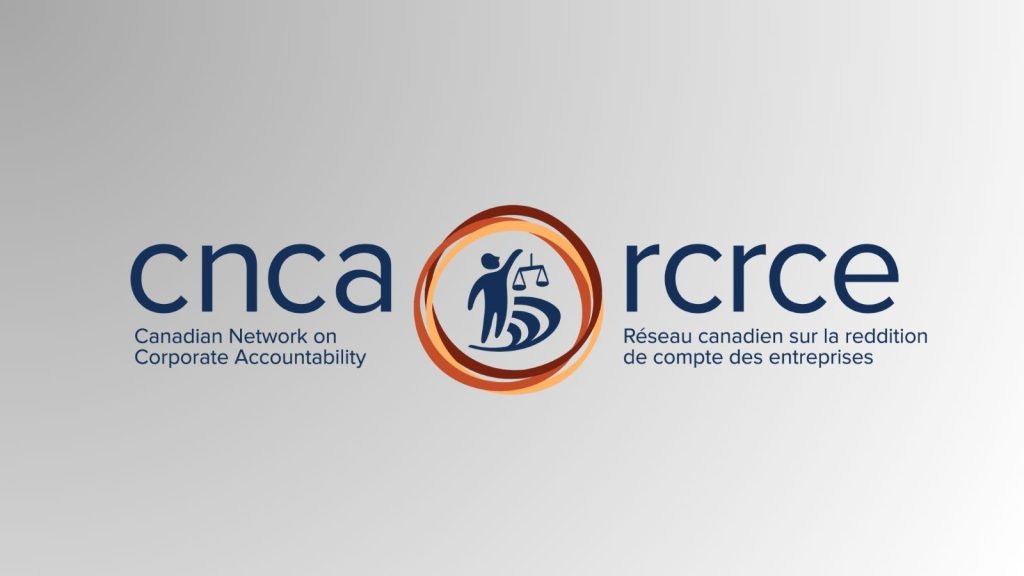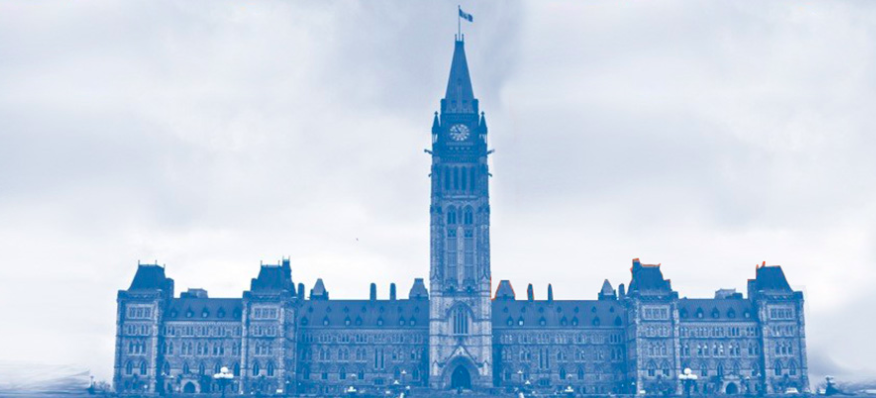In February 2020, Bill S-211, the Modern Slavery Act, was tabled in the Senate. Upon resumption of Parliament, following the summer prorogue, the bill was re-tabled as Bill S-216. Throughout 2020 and into 2021, Canadian trade unions, human rights groups and other civil society organizations have raised serious concerns about the inadequacy of the proposed Modern Slavery Act. The bill’s shortcomings will render it ineffective at addressing the serious human rights abuses occurring in the global business operations and supply chains of Canadian companies, as well as putting Canada behind the pack internationally. To date, none of these concerns have been addressed.
Reason #3
The scope is too narrow; rules would only apply to a small minority of companies
The bill’s definition [1] of entities to which the bill would apply is far too narrow and would exempt many Canadian companies. Internationally recognized guidelines, including the United Nations Guiding Principles on Business and Human Rights (UNGPs) and the OECD Due Diligence Guidance for Responsible Business Conduct (OECD Guidance for RBC) clearly stipulate that such laws should apply to all companies, regardless of size, sector, or where the company operates. Recognizing that exceptions may be legitimate in some circumstances, such exemptions should be made through regulation.
Reason #2
Bill S-211 (S-216) ignores some of the most egregious and interrelated human rights abuses
Modern slavery cannot be looked at in isolation. Doing so is not only an ineffective approach to remedying this deplorable abuse, but it also ignores many other human rights abuses that plague the international operations and global supply chains of Canadian companies.
The United Nations Declaration of Human Rights and the UNGPs clearly stipulate that human rights are interrelated, interdependent and indivisible. It is impossible to effectively prevent forced labour, without also protecting other human rights, like the right to non-discrimination or to organize collectively. The violation of one right often contributes to the violation of another.
While it is vital that Canada take action to address forced and child labour, this does not need to be done to the exclusion of addressing other prevalent human rights violations. Allegations of sexual violence, bodily harm and killings connected to the operations of Canadian mining companies have been brought to Canadian courts. One only needs to be reminded of the horrific collapse of the Rana Plaza garment factory in Bangladesh that killed 1,132 people, to get a glimpse of the occupational health and safety violations that injure and kill workers daily. In the past few decades, over 3,000 trade unionists in Colombia have been assassinated for attempting to exert their right to organize and form a union.
Bill S-216 ignores these serious violations of human and labour rights – rights that Canada has committed to uphold.
Reason #1
Bill S-211 (S-216) only requires companies to report on their actions – it does not require them to respect human rights or change their behaviour
Bill S-216 only requires companies to report on what steps, if any, they have taken to prevent and reduce the risk of forced or child labour in their supply chains. [2] It does not require companies to stop using child or forced labour. It does not require companies to conduct human rights due diligence (HRDD). As long as the company reports on any steps they took – no matter how inadequate those steps may be – and mentions any risks of forced or child labour they identified, they will be in full compliance with the law. The bill expects that the public will proactively look up the reports of every company in advance of making day-to-day purchases, which is highly unlikely.
This is not an effective or appropriate approach to regulating. We would never take this approach to food or air safety; we require companies to do it right because the costs of failure are too high. Furthermore, this approach is inconsistent with the UNGPs and represents an abdication of governments’ responsibility to protect against modern slavery. A European Union report studying and comparing the effectiveness of various types of supply chain legislation determined that reporting laws have only “minor positive social impacts.” [3]
Bill S-216 does include important investigatory powers and an offence with a fine for failure to report or for knowingly publishing a false report. However, these apply only to ascertaining whether the company accurately reported on the steps they took. Neither the investigatory powers nor the offence help to establish whether there is actually child or forced labour being used in these supply chains, nor to punish companies who are profiting off of abuse. Furthermore, the bill does not provide for liability for harm, nor provide for access to remedy for impacted people.
This would have the perverse effect that a company who uses child or forced labour and takes no steps to prevent or address it, would be in full compliance with the law as long as they annually publish a report saying they are taking no steps to address forced labour in their supply chains. On the other hand, a company that has rigorous protocols, and exceptional labour practices, but fails to produce an annual report would be guilty of an offence. Quite simply, the bill’s focus is ill- placed. The primary focus should be on preventing and remedying harm, not on reporting.
It is clear that passing Bill S-216, rather than a law that mandates human rights due diligence, would put Canada behind the pack internationally. The UK’s 2015 Modern Slavery Act, which similarly centres on reporting requirements, failed in its objective to protect victims of forced labour. When the Business and Human Rights Resource Centre (BHRRC) closed the UK’s Modern Slavery Registry in 2020, the BHRRC reported on the impact of five years’ worth of statements. BHRRC’s analysis of those statements “revealed no significant improvements in companies’ policies or practice”, concluded that the Act “has failed to be an effective driver of corporate action to end forced labour, even in high-risk sectors and regions” and noted that the “UK is now lagging behind its international neighbours.” [4] In contrast, leading jurisdictions like France, the European Union, the Netherlands and Germany have passed or are developing laws that learn from the mistakes made in the UK’s Modern Slavery Act by requiring companies to undertake human rights due diligence.
A Better Approach Forward
To garner the widespread support of Canadian and international trade unions and civil society organizations, Canada should implement an international human rights law that is aligned with global best practice and meets the guidelines set out by the United Nations, the International Labour Organization and the Organization for Economic Cooperation and Development. This means implementing a law that:
- mandates companies to prevent harm and to conduct human rights due diligence, not just report;
- covers all human rights;
- applies to all Canadian companies (with exemptions set in regulation); and
- provides for liability and remedy if a company fails to exercise adequate due diligence or causes harm.
===
A note on Canada’s ban on the important of goods made with forced labour
As of July 1 2020, Canada’s Customs Tariff Act prohibits the import of goods made, manufactured or produced in whole or in part by forced labour. As of today’s date, no goods have been excluded from import as a result of this ban and enforcement remains a challenge. Bill S-216, alongside new reporting requirements, proposes the extension of Canada’s import ban to goods made with child labour.
However, Bill S-216 will not help ramp up enforcement of the import ban because the bill only requires companies to report on what steps they are taking, it does not require them to ascertain and report on whether they are making use of forced or child labour. In other words, the reports will not help authorities to identify the presence of forced or child labour in Canadian supply chains.
Furthermore, even if effectively enforced, an import ban would not address sectors or companies that do not import into Canada but that are linked to serious human rights and labour rights abuses worldwide (e.g. Canadian extractive companies operating overseas who do not import the oil and minerals they extract overseas into Canada). As a result, an import ban would have no effect on the global operations and supply chains of those companies.
===
ENDNOTES
1. Bill S-216 defines an entity as a corporation or a trust, partnership or other unincorporated organization that: (a) is listed on a stock exchange in Canada; (b) has a place of business in Canada, does business in Canada or has assets in Canada and that, based on its consolidated financial statements, meets at least two of the following conditions for at least one of its two most recent financial years: (i) it has at least $20 million in assets, (ii) it has generated at least $40 million in revenue, (iii) it employs an average of at least 250 employees; or (c) is prescribed by regulations.
2. 7 (1) Every entity must, no later than 180 days after the end of each financial year, provide the Minister with a report that sets out the steps the entity has taken during that year to prevent and reduce the risk that forced labour or child labour is used at any step of the production of goods in Canada or elsewhere by the entity or of goods imported into Canada by the entity.
3. Publications office of the European Union: https://op.europa.eu/en/publication-detail/-/publication/8ba0a8fd-4c83- 11ea-b8b7-01aa75ed71a1/language-en
4. Business and Human Rights Resource Centre https://www.business-humanrights.org/en/from-us/media-centre/six- years-on-modern-slavery-act-failed-to-tackle-forced-labour/
===
This explainer is also available as a PDF.




